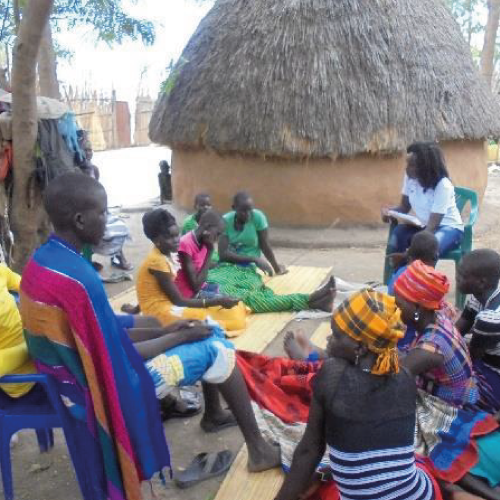What we do
Our Programs
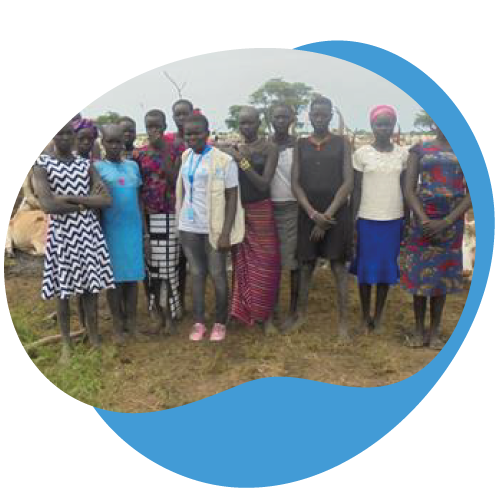
Integrated, to Sequential, to Simultaneous Programming
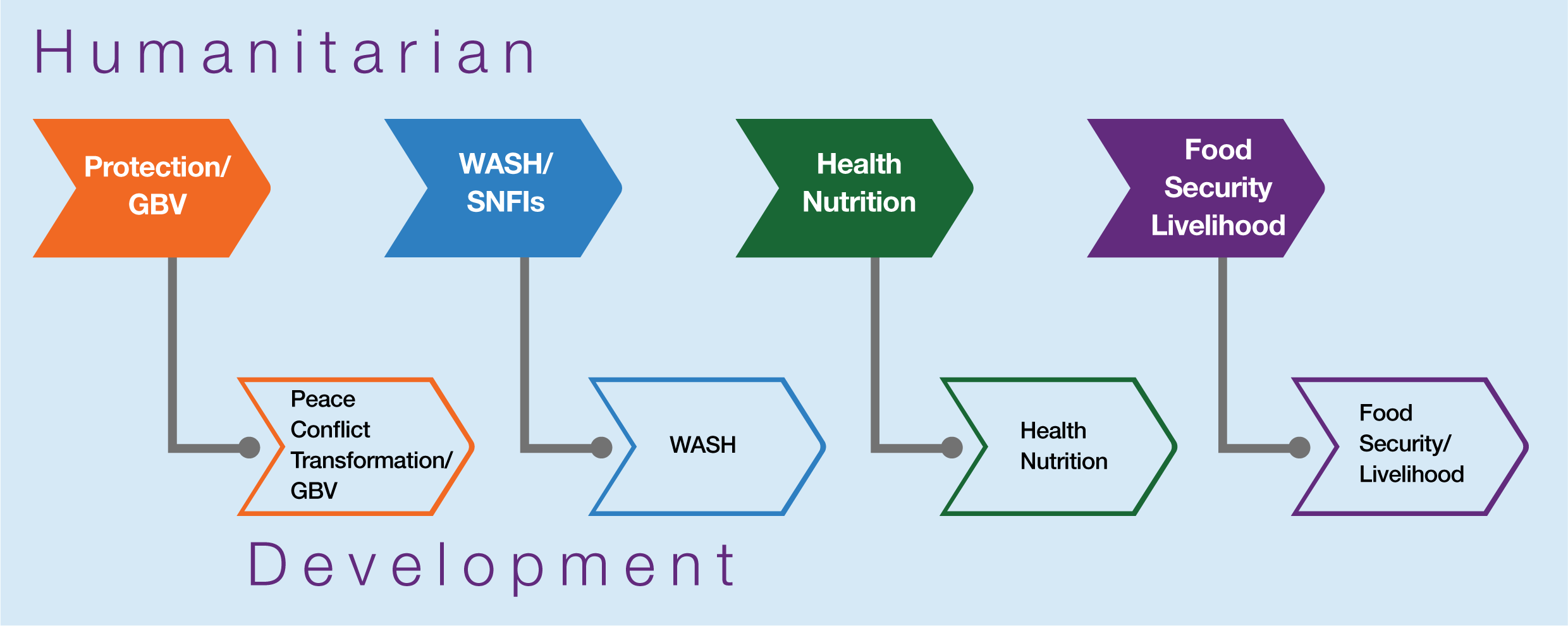
Water, Sanitation and Hygiene (WASH)
WASH coverage in the country is still very low. For example, basic water supply coverage is at 41%, basic sanitation coverage remains 11 % and 63% of the population have admitted to practising open defecation according to the UNICEF, WHO 2019 Joint Monitoring Programme. Additionally, 59 percent of the population lacks access to clean drinking water.
The Coalition for Humanity aims to respond to all Emergencies in WASH/SNFIs, and ensure availability and sustainable management of water and sanitation for all by improving access to safe and affordable drinking water for all and improving access to adequate and equitable sanitation and hygiene for all while striving to end open defecation through paying special attention to the needs of women and girls and vulnerable populations.
The Coalition for Humanity also endevours to protect and restore water-related ecosystems, including mountains, forests, wetlands, rivers, aquifers and lakes.
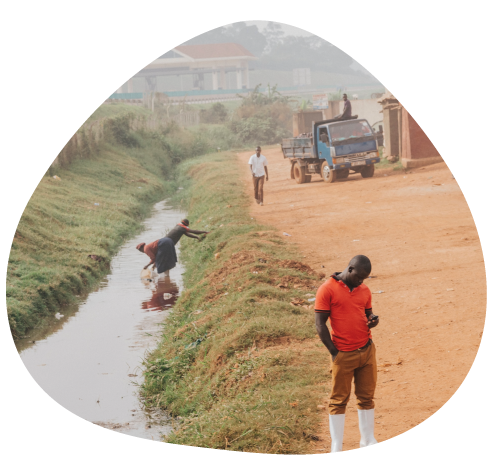
Protection, Women Empowerment and Gender Based Violence (GBV)
Reducing all forms of discrimination against all women and girls everywhere.
- Reducing all forms of violence against all women and girls in the public and private spheres, including trafficking, sexual, and other types of exploitation.
- Eliminating all harmful practices, such as child, early and forced marriage and female genital mutilation.
- Improving women’s full and effective participation and equal opportunities for leadership at all levels of decision making in political, economic and public life.
Peace Buiding and Conflict Transformation
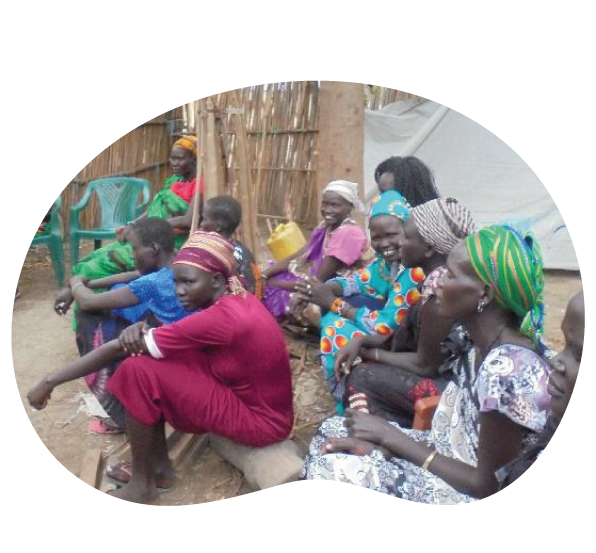
The Coalition for Humanity seeks to promote peaceful and inclusive societies for sustainable development, provide access to justice for all and build effective, accountable and inclusive institutions at all levels through:
- Advocating for significant reduction of all forms of violence and related death rates everywhere.
- Promoting the rule of law at the lowest levels (Villages, Bomas, Payams, County) as well as states, national and international levels and ensure equal access to justice for all.
- Advocating for the development of effective, accountable and transparent institutions at all levels.
- Improving public access to information and protecting fundamental right and freedoms in accordance with national legislation and international agreements.
- Advocating and promoting the enforcement of non-discriminatory laws and policies for sustainable development.
Health and Nutrition
The Coalition for Humanity aims to provide emergency and essential health and nutrition services to address immediate health needs of persons impacted by acute emergencies while providing support in primary healthcare in a way that would resonate well with community needs especially in the counties and localities of Leer, Panyijar, Mayiendit, Koch, Guit, Rubkona and Mayom. The Coalition will aim to:
- Provide emergency and essential health and nutrition services to address immediate health needs of persons impacted by acute emergencies
- Reduce the maternal mortality rate.
- Reduce preventable deaths of newborns and children under 5 years of age.
- Reduce new infections of AIDS, tuberculosis, malaria, neglected tropical diseases, combat hepatitis, water-borne diseases, and other communicable diseases.
- Improve access to sexual and reproductive health-care services, including for family planning, information and education, and the integration of reproductive health into national strategies and programmes.

Food Security and Livelihood
At the Coalition for Humanity (CH), Food security and livelihood is one of the main focus areas. The organization supports vulnerable communities affected by conflict to recover and move towards self-reliance. Interventions address two important aspects of the respective communities:
- Immediate emergency humanitarian livelihoods support – This is help accorded to the most vulnerable households that have been affected by conflict and other disasters. The program targets internally displaced persons (IDPs), returnees and host communities. In this area, CH has so far supported more than 100,000 individuals across the former Unity State with vegetable seeds, crops, fishing kits and agricultural tools. We trained over 500 Agricultural Extension Workers and Animal health workers (CAHWs).
- Long-term food security and livelihood support – This program seeks to empower communities, especially women and other special groups, through different innovative approaches in order to change their lives through training on entrepreneurship and life skills, village farm schools, and village saving and loans associations (VSLAs) and other income-generating activities (IGA) aimed at changing their lives in the long term. Livestock support also forms one core area of engagement within the long term food security and livelihood support. The Food Security and livelihood programme is integrated and mainstreamed across other programmes that CH is engaged such as Water Hygiene and Sanitation (WASH), Health and nutrition, Protection, GBV and gender empowerment.
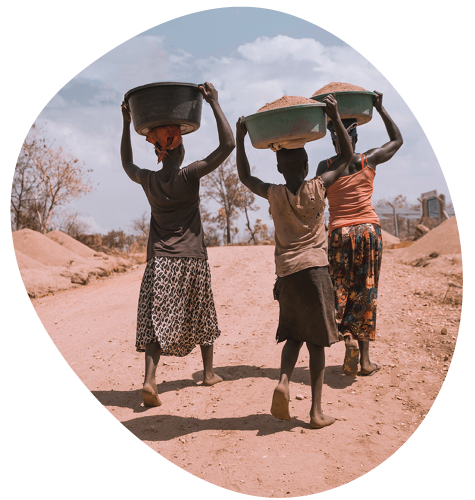
Our Partners and Funders







